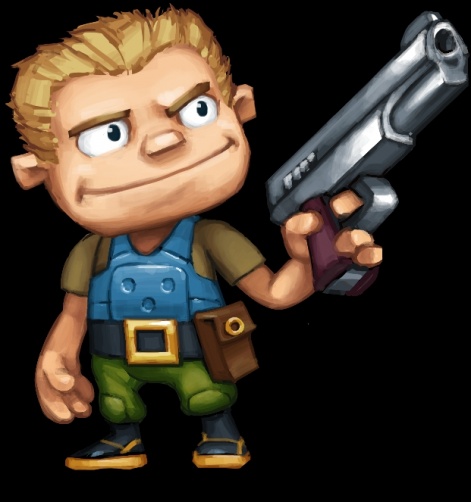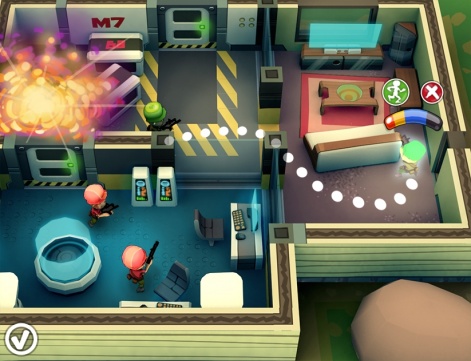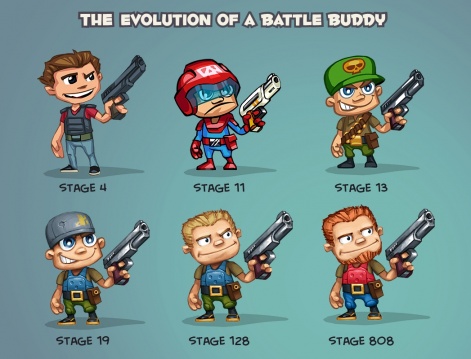Finnish social game developer Supercell - best known for Facebook game Gunshine - is now hard at work preparing its next big title, Battle Buddies.
With inspiration taken from 90s classics such as Laser Squad and X-Com: UFO Defence, and with the hefty promise to deliver 'social gaming 2.0', Battle Buddies is certainly one to keep an eye out for in 2012.
Ex-Digital Chocolate Finland president Ilkka Paananen is at the Supercell helm and here's what he had to say when we quizzed him on the upcoming project.
PocketGamer: Your first game was on Facebook but your next two are mobile so what's your platform strategy going forward?
Ilkka Paananen: Our approach has always been very technology agnostic. We have developed our own proprietary technology platform that enables us to launch our games on the platforms that we choose.
That said, we are very big believers in mobile and tablets as platforms, and think most of the entertainment will be consumed on those types of devices going forward, as opposed to desktop and laptop PCs.
So most of our new launches will target both mobile and tablet platforms going forward, although we are definitely not ruling out versions for desktops or laptops either.

Whatever the platform, we will always use Facebook to offer our users a rich social gameplay experience.
In desktop web browsers, that is offered using Facebook Canvas or Facebook Connect, and in mobile and tablets via Facebook Connect.
In fact, we are very excited about Facebook's new mobile initiatives and will be one of the pioneers in taking leverage of them in delivering new kind of social gameplay experiences for our users on mobile.
What is the difference between social on Facebook and on mobile?
Our approach to 'social' is pretty different to that of most companies that call themselves social gaming companies.
We think that 'social' must not just be asking for resources to speed up the gameplay, or inviting friends to unlock extra game content.
Instead, when we think about social, we think about how users can interact with each other on a deeper level, be that via co-op multiplayer, player vs player multiplayer, asynchronous or real time.
So when defined this way, I am not sure how big of a difference there is between desktop web and mobile - both can use Facebook to make it easier to play with friends, and we are very excited about the Facebook Open Graph for mobile, and the kind of gameplay experiences that enables.
Naturally, the biggest difference between mobile and desktop web comes from the nature of game session. When you are with your PC, playing either from home or work, the game session can be considerably longer than from your smartphone if you are checking into the game while you are waiting for the bus to come.
This poses interesting challenges for the game session, because ideally you want to support both long and short sessions, especially since the sessions you would expect from tablets tend to be longer than from smartphones, and we want to support both.
Why did you choose line drawing as the gameplay mechanic for Battle Buddies?
Because we are so focused on providing the best possible user experience for our users.
The user interface in desktop web (mouse UI) and mobile/tablets (touch UI) is very different. We believe that games should be 'built for the platform' ground up, not just ported over from another type of device.

For example, we would never just port a mouse UI from desktop web and expect that to be a good experience on mobile.
In case of Battle Buddies, we experimented with different types of UIs where the user can move a group of fighters.
We have an extremely experienced team of touch UI developers, and some of them came up with the idea of using drawing as a way to move the characters because that is a very natural way to use touch devices.
We ran a lot of focus groups on this, and compared it to other options, and this one came out as the clear winner.
How many simultaneous games do you hope people will have in play at any time?
We think that in mobile multiplayer games, it is important that the user can play the game in small bursts.
Also, it is important to enable asynchronous play (i.e. not require that your friend is online at the same time that you are). Battle Buddies has been designed with these two principles in mind, and we wanted to allow the user to have many simultaneous matches going on at the same time, to make sure there is always some action going on in the game.
The number of simultaneous games depends on the player: some will want to focus on single player matches against teams controlled by AI, while others want to play with their friends and enjoy having many simultaneous matches going on at the same time.
The beauty of the design in Battle Buddies is that it works really well for lots of different types of users.
What's your plan with respect to in-app purchases for Battle Buddies?
We are utilising the standard free to play model. Although we wanted to be quite careful here, so that the users who are using real money would not get an unfair advantage over the free players.

It is important for us that the game is enjoyable by both, the users who pay and the users who do not.
What are the benefits to being a part of the Helsinki games development community?
There is a lot going on here! Of course everyone knows Angry Birds but there are a lot of other companies that make great games too.
The biggest benefit is access to the world's best developers, which Supercell is a great example of. There are also a lot of community events and in general a great spirit among the developers here.
Thank you to Ilkka for his time. You can find out more about Supercell here.























